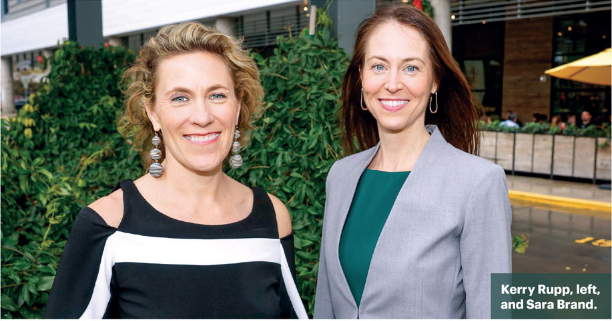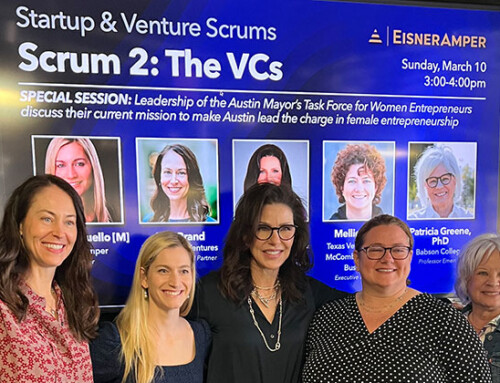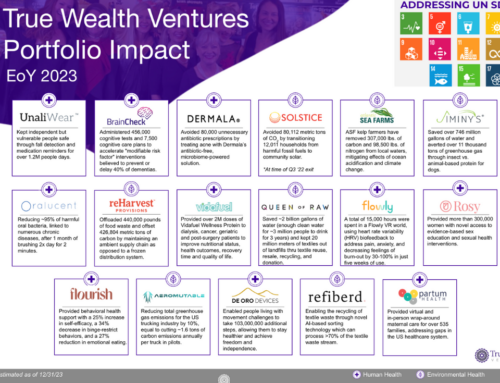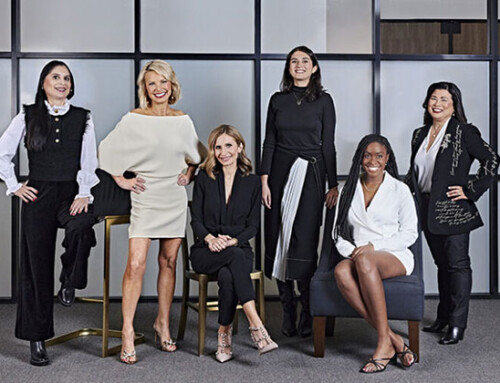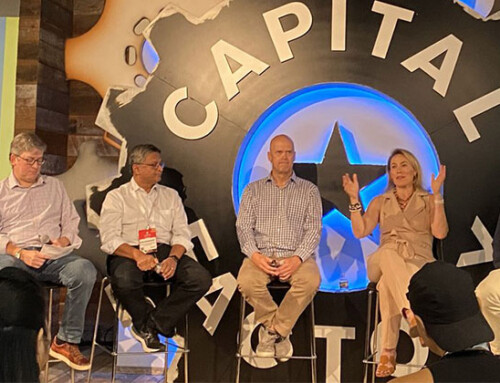Venture capitalists face a daunting challenge when raising money for their first fund.
“Less than 10 percent of first-time funds reach the finish line,” wrote Mahendra Ramsinghani in his 2014 book, “The Business of Venture Capital,” where he noted that only 7 percent of funds raised are by debut funds.
That Sara Brand and Kerry Rupp closed their $19.1 million first fund on Jan. 29 catapults the pair into some rarefied air.
They accomplished the feat just over two years after Brand founded Austin-based True Wealth Ventures in September 2015.
More notable: They are women — making them an anomaly in the investment world.
Women compose 1 percent, maybe, of all venture capitalists, according to Trish Costello, who co-founded the Kauffman Fellows Program, a California-based VC education and leadership curriculum. She was its CEO for more than a decade.
True Wealth Ventures is a mission-driven VC firm. Brand and Rupp target women-led companies in health care or that are making sustainably sourced consumer products. It has made two investments: in BrainCheck Inc., a Houston-based maker of software that measures brain health, and UnaliWearInc., an Austin startup that sells a smart watch to assist senior citizens living independently and people with physical limitations.
They seek to disrupt a funding ecosystem in which Brand and Rupp say women-led startups account for just 2 percent of VC funding.
This, despite evidence the two cite that women make between 80 percent and 85 percent of health care and consumer-purchase decisions. Multiple studiesand reports during the past seven years alone have found that companies led by women or with women on the executive team outperform those that don’t.
A 2016 Harvard Business Review report found that women-led startups that receive funding from women VCs have a 32.1 percent higher exit rate.
“In venture capital, women-led companies require less capital while delivering higher returns,” Brand wrote for Forbes in October.
Brand said it is an “economic imperative” that more women become involved in early-round funding of women-led startups. A 2014 report by the New York-based Center for Talent Innovation concluded that women will control the majority of U.S. investable assets by 2030.
Another way the two VCs are investing in women-led startups is True Wealth Ventures first pitch session during South by Southwest Conference & Festivals (SXSW) next month. Brand and Rupp will provide feedback to those who make the cut. The application deadline is Feb. 27, and the pitch session is scheduled to occur on March 10. Click here to apply.
More than 80 percent of the investors in True Wealth Ventures’ $19.1 million fund are women, which Brand said is unprecedented. Rhone McCall is one of them.
“It was something I couldn’t say no to,” said McCall, who is owner and president of ProperCare, an Austin company that provides aging adults care management services.
She decided to invest in December 2016 after learning from Brand the landscape regarding women-led companies and VC funding.
“This is about women-empowerment and moving women ahead,” McCall said.
The systemic bias against women that exists in the VC-startup world yields investment opportunities, said Jason Seats, managing partner at the Austin location of the Colorado-based Techstars Central LLC accelerator.
“The Austin ecosystem can use more capital sources,” he said. “There’s no question this is an underserved opportunity. Only in the past few years has any meaningful attention been paid to closing that gap and addressing that issue.”
Inherent challenges
Raising money for a VC fund is similar to raising money for a startup — especially the constant networking and coffee dates — but is made trickier by federal regulations.
The U.S. Securities and Exchange Commission sets the maximum number of investors at 99 — regardless of fund size. And those people must be accredited investors.
Criteria to be considered an accredited investor include an annual income of at least $200,000 during the last two years, with the expectation that will continue, or an individual net worth that exceeds $1 million.
“If the fund can have only 99 investors, to get to [$19.1 million], you must have a $250,000 minimum,” Brand said. “You can’t say you’re fundraising in public because then you might be marketing to non-accredited investors. There are no pitch sessions.”
Rupp said, “One of the hardest things to do is getting those first people to commit and create momentum.”
To establish the fund and pay to market it to women entrepreneurs, Brand and Rupp obtained a two-year $250,000 economic development matching grant from the U.S. Department of Commerce. To meet grant requirements, True Wealth Ventures teamed up with the Dell Medical School at the University of Texas at Austin to form a public-private partnership.
A milestone occurred in July 2016, when the fund attained its first $4.7 million. An SEC filing at that time by True Wealth Ventures demonstrated that a viable fund existed, Brand said.
Funds typically close between 12 and 24 months after the first money is raised, Rupp said, while True Wealth chose 18 months.
About 67 percent of the fund investors are from Austin, with 88 percent from Texas, Rupp said.
The plan is to invest in roughly 12 companies, Brand said. As a matter of course, she and Rupp will share all relevant company details with fund investors, some of whom may decide to further invest in those companies.
About one-third of the capital will be used for startups’ first funding round, with the remaining two-thirds reserved for later rounds, Brand said.
As a 10-year fund, by the third quarter of 2025, “all the companies should have exited and we’ll have returned the investment and upside to all our investors,” Brand said.
Original article posted here.

